Premium Only Content

The Real Threats to Democracy
In the latest episode of the ITR podcast, Chris and John delve into a comprehensive update on the legislative landscape following the initial legislative funnel. Their discussion covers the trajectory of several pivotal bills, including the governor's tax initiative which has successfully advanced through a subcommittee. They also explore the vibrant debates and developments surrounding various legislative matters such as the farmland legislation, proposals for a guaranteed income, and the consolidation of boards and commissions. John further examines the House's efforts towards enhancing civics education and the regulatory reform bill, underscoring the potential impact of these legislative endeavors on policy and governance.
John inaugurates the ITR Live Editorial segment by addressing the perceived threats to democracy, critiquing the strategies of certain factions aimed at altering the democratic fabric. He critically examines calls to dismantle the Electoral College, the proposition to expand the Supreme Court, and the push for statehood for the District of Columbia and Puerto Rico as maneuvers to tip political scales. Specifically, he underlines the implications of such actions on constitutional freedoms, with a keen focus on religious liberty. John challenges the narrative that labels specific individuals or groups as democratic threats, instead urging a reassessment of who genuinely endangers democratic principles.
Drawing parallels with historical narratives, John scrutinizes the accusations levied against contemporary figures against those made against past political icons like Ronald Reagan and Barry Goldwater. Through this historical lens, he disputes the dominant narratives that cast a shadow over certain leadership figures, inviting the audience to look beyond the accusations of warmongering and threats to democracy. He also condemns the exploitation of fear by political establishments to manipulate public opinion and policy, particularly criticizing the misrepresentation of skeptics of unchecked financial aid to Ukraine as adversaries of NATO and proponents of European domination by Putin.
The discussion transitions to the American Political Science Association's recent Presidential Greatness Survey, where the hosts share insights into the rankings. Lincoln's top placement, owing to his pivotal role in preserving the union, sparks no surprise. However, the hosts express varied views on FDR's high ranking, debating his legacy and the implications of government expansion. The conversation evolves into a broader discourse on how presidents associated with governmental growth are often favorably ranked, prompting a critical examination of the criteria influencing such assessments. The hosts navigate through comparisons and personal perspectives that shape the historical appraisal of presidents, highlighting the subjective nature of such evaluations.
The episode concludes with a reflection on the fascination with presidential rankings among historians and political scientists. The hosts dissect the nuanced criteria and perceptions that influence these rankings, offering listeners a deeper understanding of the complexities involved in assessing presidential legacies. This engaging dialogue not only sheds light on the multifaceted process of historical evaluation but also encourages a thoughtful consideration of the diverse factors that sculpt the legacy of America's presidents.
-
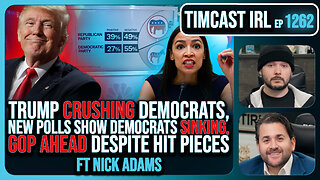 2:39:06
2:39:06
TimcastIRL
6 hours agoTrump CRUSHING Democrats, New Polls Show Democrats SINKING, GOP AHEAD Despite SMEARS | Timcast IRL
195K84 -
 9:30:09
9:30:09
Dr Disrespect
14 hours ago🔴LIVE - DR DISRESPECT - TARKOV ALL DAY
206K20 -
 5:08:52
5:08:52
Akademiks
7 hours agoDay 1/30. Diddy TRIAL Starts today! Brittany Renner marries Kevin Gates? Future Beefin w/ TRIPPIE?
44.7K -
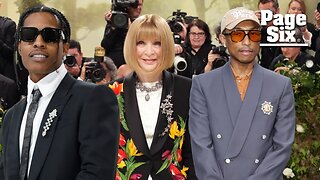 5:32:33
5:32:33
Page Six
11 hours agoMet Gala 2025 red carpet arrivals | Watch live
97.5K12 -
 LIVE
LIVE
SpartakusLIVE
7 hours agoDuos w/ Twitty || CHAMPION of Verdansk brings you Monday MOTIVATION
328 watching -
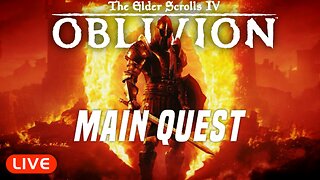 3:20:18
3:20:18
SilverFox
4 hours ago🔴LIVE - OBLIVION REMASTERD - MAIN QUEST
35.2K2 -
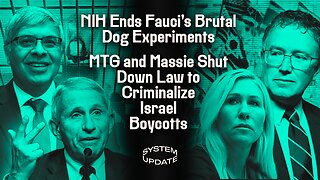 1:27:44
1:27:44
Glenn Greenwald
8 hours agoNIH Ends Fauci's Brutal Dog Experiments; MTG and Massie Shut Down Law to Criminalize Israel Boycotts | SYSTEM UPDATE #449
112K107 -
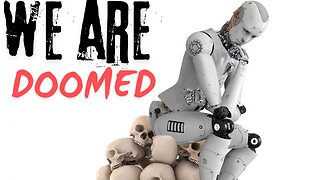 2:00:01
2:00:01
The Quartering
6 hours agoAI Rises Up & ATTACKS Men, Diddy Is Naming Names, Woke Professor BUSTED With CP & Pride Collapses!
90K44 -
 1:48:52
1:48:52
megimu32
6 hours agoON THE SUBJECT: Luke, I Never Said That.. Mandela Effects, Y2K Chaos & Taco Bell Tears
37.7K8 -
 1:17:22
1:17:22
We Like Shooting
17 hours ago $5.72 earnedDouble Tap 408 (Gun Podcast)
37.3K